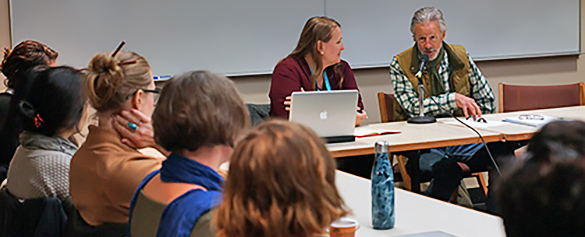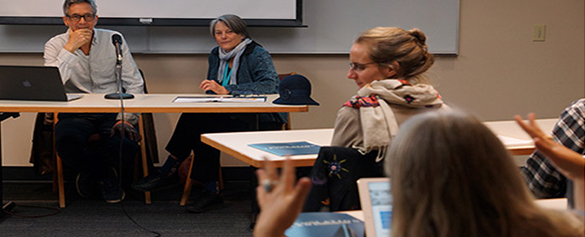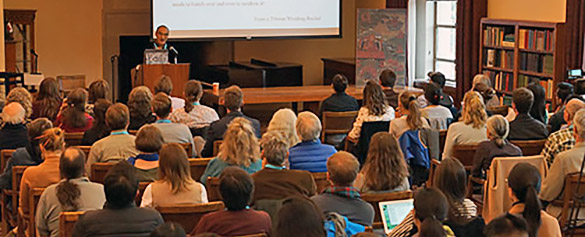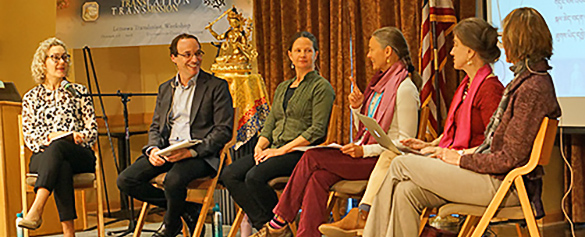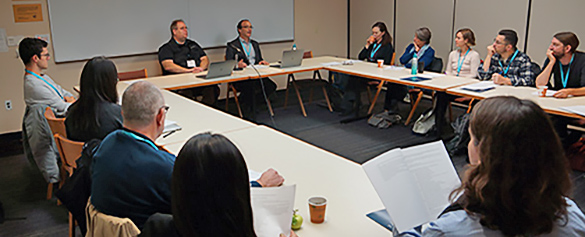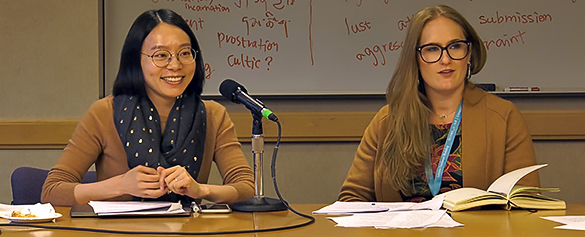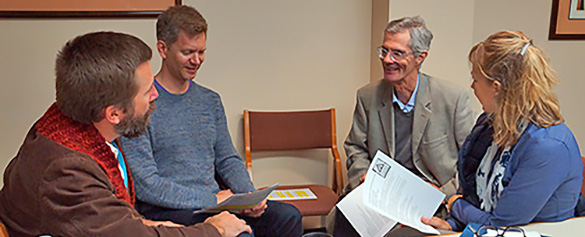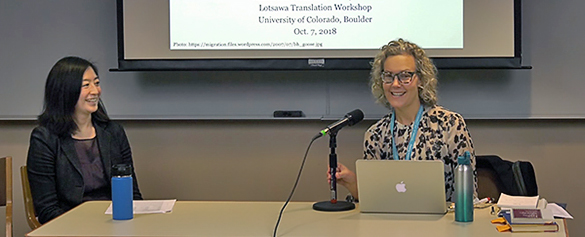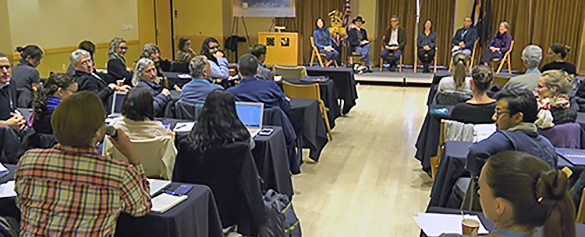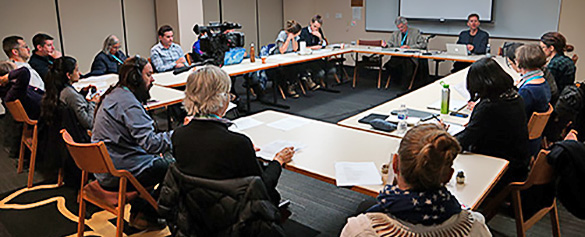Criteria for Beauty and Readability
Migmar Lama2022-11-16T23:40:42-07:00When assessing the beauty and readability of a translation one might pose the following questions: does the text come alive in the target language? Is there a distinct emotional tone that comes through in the translation? Does a chosen grammatical structure have the power to convey what we are trying to convey? How do we summon that power to our work?
In this breakout group, Amelia Hall and Andrew Schelling, colleagues at Naropa University in Boulder, CO, address these questions and discuss the importance of techniques to invoke the power of the creative act of translation. They encourage the translator to […]

